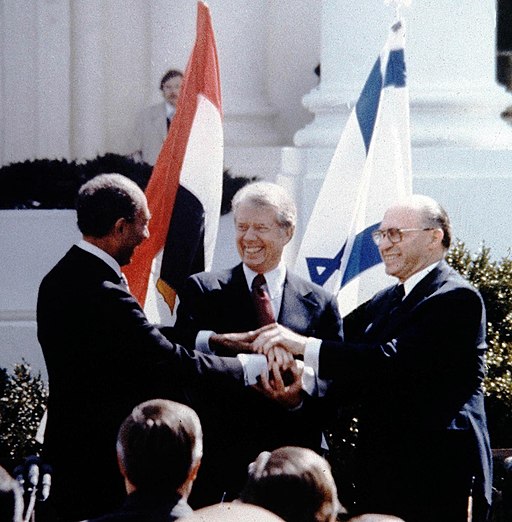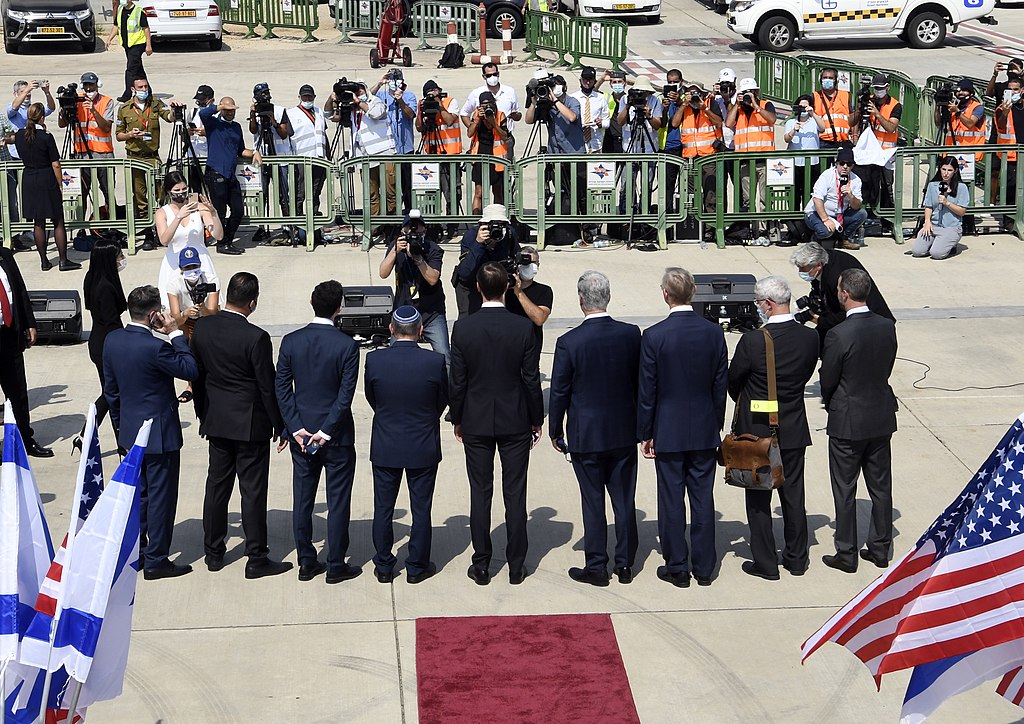At a historical summit between Israel and its Arab allies in the southern Negev, the Israeli government hosted the United States Secretary of State, Antony Blinken along with foreign ministers from Bahrain, Egypt, Morocco, and the United Arab Emirates (UAE). The meeting occurred at a resort near the tomb of Israel’s first prime minister, David Ben-Gurion, where ministers and Blinken discussed issues ranging from energy and environment to security and terrorist activities in the Middle East region. The Negev Summit between Israel and Arab nations—historic enemies—reveals each side’s commitment to establishing peaceful relations and working together to stop Iran’s aggression.
During the Israeli-Arab wars, officials of the Arab states refused to hold talks with Israeli officials or even recognize Israel’s right to statehood. Arab states would meet with one another to plot the destruction of the Jewish state even as Israeli prime ministers such as Golda Meir and government officials called for peace between Israel and its Arab neighbors. One important reason for the Arab states’ refusal to recognize or normalize ties with Israel was that there was no resolution on the Israeli-Palestinian issue.
In March of 1945, the Arab League formed with six members: Egypt, Iraq, Transjordan (later Jordan), Lebanon, Syria, and Yemen. It later included Morocco, Sudan, Bahrain, and other Arab states. The organization adopted an anti-Israeli strategy that boycotted economic activity with the Jewish state, refused to recognize Israel’s existence, and engaged in military action against Israel. Whenever the Arab League had meetings or summits, such as Khartoum in 1967, nearly all present leaders discussed the possibility of the total destruction of Israel, choosing not to engage in any peace or normalization accords.

In March 1979, after Egyptian President Anwar al-Sadat signed a peace accord with Israeli Premier Menachem Begin to recognize and normalize relations with Israel, there were massive shockwaves sent throughout the Arab world as Egypt became the first Arab country to recognize the Jewish state. Even when Sadat was committed to peace with Israel, the Arab League and its members still would not budge on their anti-Israel stance.
Ever since the Iranian revolution of 1979, Iran has increased its attacks on Arab states, using its proxies throughout the region to install regimes loyal to Khomeini’s Revolutionary beliefs. Ironically, however, Iran’s increasingly extreme military actions have made members of the Arab league such as Jordan, Bahrain, the UAE, Sudan, and Morocco slowly come to the correct realization that Israel is a potential ally needed to deter the mullahs in the Islamic Republic.
Fast forward to the year 2022, where Arab government officials meet with Israeli government officials in Israel to engage in what could be the start of a new Middle Eastern league; one in which Israel is not the primary target, and is instead viewed as an equal among the Arab countries. The summit itself will send a message to the Islamic Republic of Iran that Israel and its Arab allies stand united against Iranian aggression. According to news reports, the officials agreed to work together to handle counterterroism, energy, education, toursoium, public health, and other issues.
This summit comes while the Biden Administration is on the brink of reviving the 2015 Joint Comprehensive Plan of Action (JCPOA) or Iran nuclear deal. Israeli and Arab officials are correctly worried that the agreement outlinedbetween the United States and Tehran provides a list of favorable measures to the Islamic Republic without any actual accountability that the regime will cease its nuclear ambitions or stop funding terrorism in the region. These favorable measures include granting waiver on Iranian oil exports, removing economic sanctions on Iran’s economy, unfreezing billions of dollars in Iranian assets overseas, and potentially delisting Iran’s Revolutionary Guards Corps (IRGC) off the U.S. Foreign Terrorist List.
Given these favorable measures provided to Iran by the Biden Administration, it’s unsurprising how worried Israel and states like Morocco, Bahrain, Egypt, and the UAE are. The Negev summit will hopefully generate more and more cooperation between Israel and the Arab community; cooperation aimed towards addressing the issue of Iranian aggression and influencing U.S. foreign policy in the Middle East.
If more Arab countries, like Saudi Arabia, were to normalize ties with Israel, then summits like the one in the Negev could become part of the first step in establishing a new league of Middle Eastern states. Only time will tell what happens next—but for now, the world should be amazed to see how far Israel and the Arab nations have come.
“The views expressed in this post reflect the views of the author(s) and not UCLA or ASUCLA Communications Board.”

